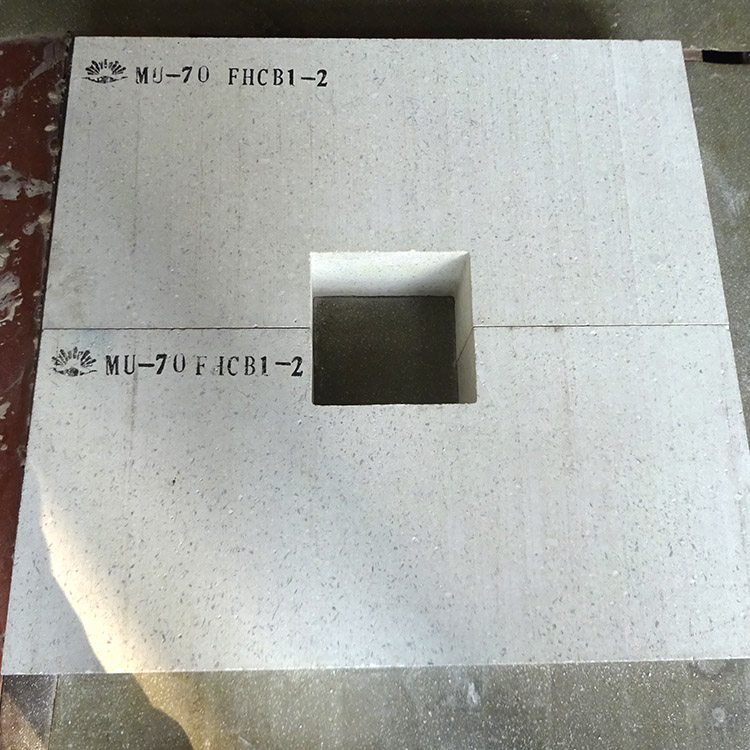
Glass production is a complex and demanding industry, fraught with numerous challenges that often hinder production efficiency and product quality. However, a remarkable solution has emerged in the form of dense zirconium blocks, effectively addressing these long - standing issues and revolutionizing the glass manufacturing process.
One of the most significant features of dense zirconium blocks is their highly compact crystal structure. With a bulk density of up to 4.5 g/cm³, they exhibit remarkable strength and resilience. In comparison to traditional refractory materials, which typically have a bulk density of around 2.5 - 3 g/cm³, dense zirconium blocks offer superior performance.
Thermal stability is another key advantage. They can withstand temperatures of up to 1800°C, significantly higher than the working temperature of most glass - melting furnaces, which usually range from 1300°C to 1600°C. This high - temperature resistance ensures that the blocks maintain their structural integrity, preventing premature burnout and reducing the frequency of equipment replacement.
When it comes to mechanical strength, dense zirconium blocks truly shine. Their compressive strength can reach 200 MPa, far exceeding that of ordinary refractory materials, which generally have a compressive strength of around 80 - 120 MPa. This high mechanical strength allows the blocks to endure the high - pressure environments within glass furnaces, ensuring long - term, stable operation.
Moreover, their excellent abrasion resistance is crucial for glass production. In a glass - melting process where high - velocity glass flow and solid - particle erosion occur, the dense zirconium blocks can maintain a smooth surface for up to 5 years, while common refractory materials may show obvious wear within 1 - 2 years.

Dense zirconium blocks find their primary applications in two important types of glass furnaces: non - alkaline glass fiber furnaces and low - alkaline borosilicate glass furnaces.
In non - alkaline glass fiber furnaces, the high - purity and chemical stability of dense zirconium blocks prevent contamination of the molten glass. They are mainly used in critical areas such as the throat and feeder channels. For example, a well - known glass fiber manufacturer reported a 30% reduction in production downtime after replacing traditional refractory materials with dense zirconium blocks in their furnace, due to the enhanced durability and reduced need for maintenance.
.jpg)
In low - alkaline borosilicate glass furnaces, the blocks' ability to resist corrosion from borosilicate glass makes them ideal for use in the melting tank and regenerator. A case study showed that the service life of the furnace lining increased from 2 years to 4 years after using dense zirconium blocks, significantly improving the overall efficiency and cost - effectiveness of the production process.
Glass manufacturers often face pain points such as high production costs due to frequent refractory replacement, low product quality caused by material contamination, and unstable production processes because of equipment damage. Dense zirconium blocks effectively resolve these issues.
By providing long - lasting durability, they reduce the frequency of equipment replacement and maintenance, thereby lowering production costs. Their high chemical stability and purity ensure the quality of the final glass products. And with their excellent thermal and mechanical properties, they maintain a stable operating environment for the glass - melting process, increasing production efficiency.
Are you tired of the constant challenges in glass production? Dense zirconium blocks can transform your production process, improving efficiency and quality. Don't miss out on this opportunity to revolutionize your glass manufacturing. Contact us today to learn more about how dense zirconium blocks can solve your glass production problems!


